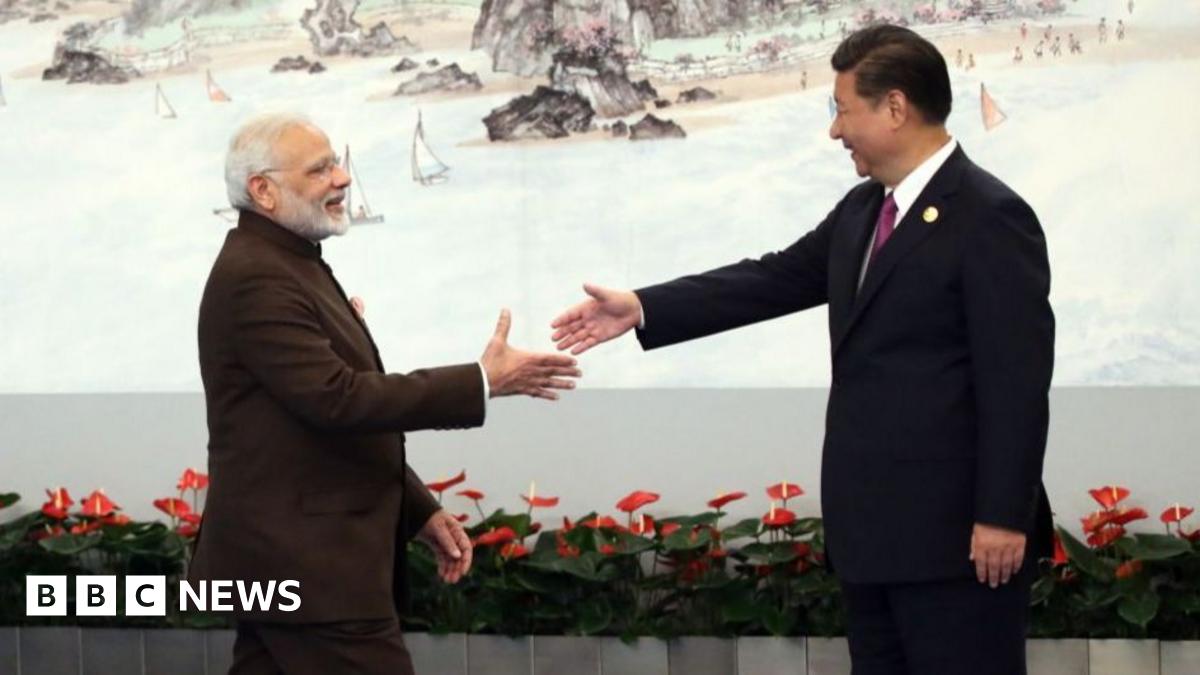India and China are economic powerhouses – the world’s fifth and second largest, respectively.
But with India’s growth expected to remain above 6%, a $4tn (£3tn) economy, and $5tn stock market, it is on the way to moving up to third place by 2028, according to the International Monetary Fund (IMF).
“While the world has traditionally focused on the single most important bilateral relationship in the world, US and China, it is time we shift more focus on how the second and would-be third largest economies, China and India, can work together,” says Qian Liu, founder and chief executive of Wusawa Advisory, based in Beijing.
But the relationship is deeply challenging.
The two sides have an unresolved and long-standing territorial dispute – that signifies a much broader and deeper rivalry.
Violence erupted across Ladakh’s Galwan Valley in June 2020 – the worst period of hostility between the two countries in more than four decades.
The fallout was largely economic – a return of direct flights was taken off the table, visas and Chinese investments were put on hold leading to slower infrastructure projects, and India banned more than 200 Chinese apps, including TikTok.
“Dialogue will be needed to help better manage the expectations of other powers who look to India-China as a key factor of Asia’s wider stability,” Antoine Levesques, senior fellow for South and Central Asian defence, strategy and diplomacy at IISS, says.
There are other fault lines too, including Tibet, the Dalai Lama, and water disputes over China’s plans to build the world’s largest hydroelectric power project across a river shared by both nations, as well as tensions with Pakistan after the Pahalgam attack.
India also does not currently enjoy good relations with most of its neighbours in South Asia, whereas China is a key trading partner for Pakistan, Bangladesh, Sri Lanka and Afghanistan.
“I would be surprised if a BYD factory is coming to India, but there may be some soft wins,” Priyanka Kishore, founder and principal economist at research company Asia Decoded, says.
It’s already been announced that direct flights will resume, there may be more relaxations on visas, and other economic deals.
